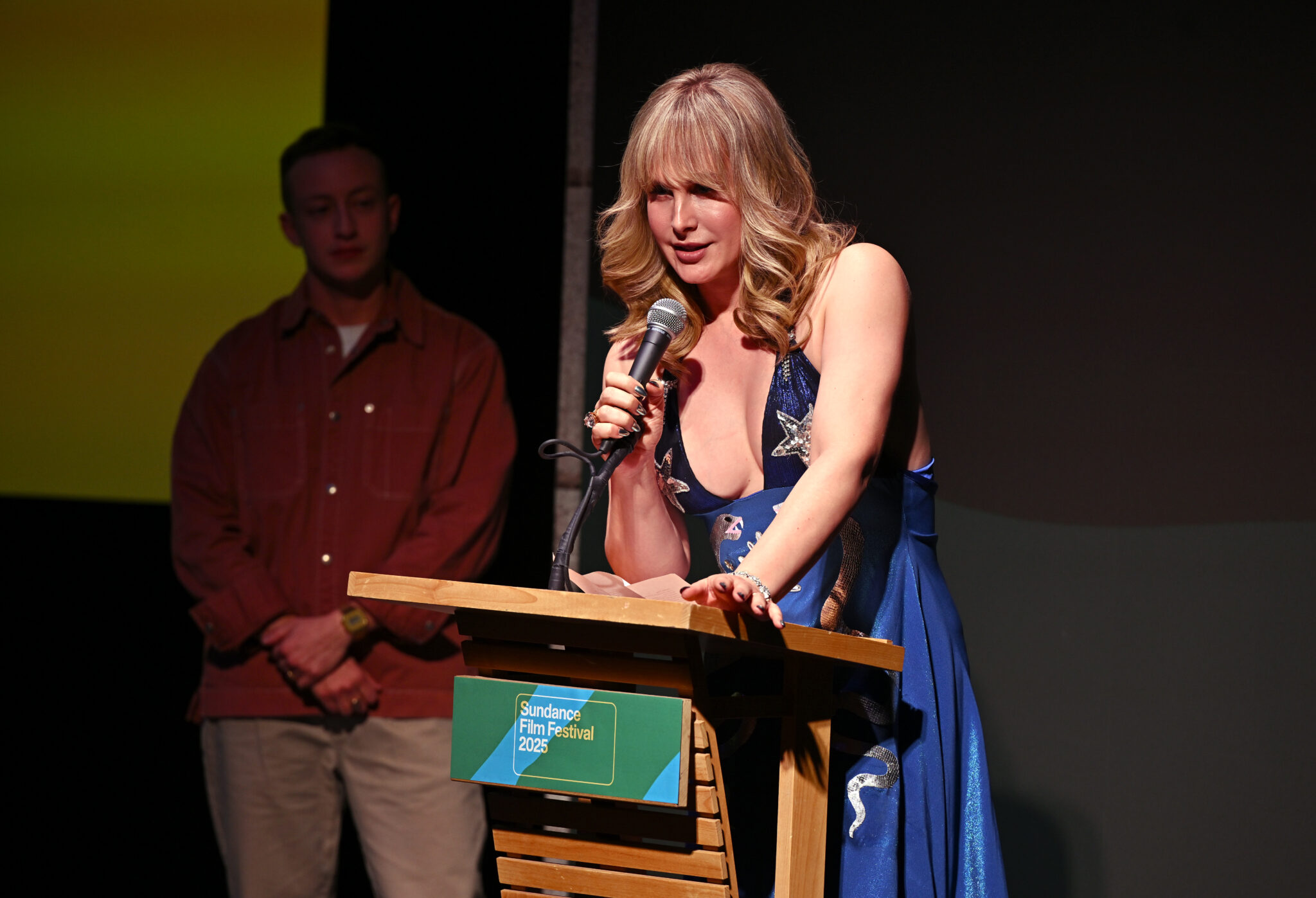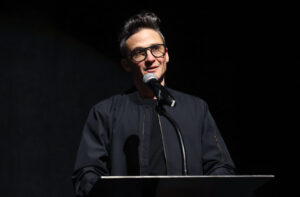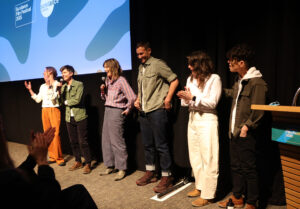Zackary Drucker attends the 2025 Sundance Film Festival premiere of “Enigma” at the Egyptian Theatre on January 28, 2025, in Park City. (Photo by Andrew H. Walker/Shutterstock for Sundance Film Festival)
By Shelby Shaw
Producer Noah Levy was talking with pop star Amanda Lear for a year before she was ready to be part of a documentary. Once she agreed to participate, Levy went to director Zackary Drucker for the project. Being a trans woman who sees Lear as an iconic figure of trans history, Drucker immediately hopped on board. But Lear has never admitted to being trans — a fact that has shrouded her legacy in mixed feelings among the trans community.
Enigma, screening January 28 in the Premieres section of the 2025 Sundance Film Festival, digs into decades of film and newspaper archives to spotlight some of the women and venues that gave rise to the trans community we have today, even as they were oppressed, denied, and forced into the shadows for most of their history. Now, Enigma wants to put that history into the mainstream narrative, and Lear as a public figure is a question looming large over the film’s goal of sharing trans legacies today. “I was just so curious about where [Lear] would land, at 85 years old, looking back at her life,” Drucker tells the audience in the Egyptian Theatre at the film’s post-premiere Q&A. “To really know who she is and who she was. And we found out.”
The documentary was planned to revolve around Le Carrousel de Paris, famed for its cross-dressing cabaret shows after opening in 1948, and trans model April Ashley’s narrative would fill in the blanks of the history — including what Lear couldn’t (or would refuse to) remember for the camera. To find other women who had danced and modeled with Ashley and Lear, Drucker’s team reached out to their network to track down who was still alive and willing to speak. “Many of them are just retired,” Drucker says. “They don’t want to be on camera anymore.” But, according to Drucker, the significance of their participation stretched beyond the documentary. “When it comes to telling stories of these early generations of gender rebels, there’s so little material,” Drucker says. The archival footage they managed to get hold of played a critical role in the editing process.
“Except that Dolly Van Doll and Bambi both loved filming themselves,” adds editor Claire Didier during the Q&A, referring to two of the trans Carrousel showgirls who were interviewed for Enigma. “So we have all this amazing 8mm from the ’50s and ’60s. That was the backbone of that era; that’s how we were able to tell that story.”
In 2012, Ashley was made a prestigious Member of the Order of the British Empire (MBE) for her contributions to the fight for transgender equality. Unfortunately, she passed away in 2021 before Enigma was in production, so her major late-life interview, woven throughout the film, became critical to include.
Of interviewing Lear, the “European Queen of Disco” among other titles, Drucker tells the audience, “I wanted to let her know, personally, ‘You have a legacy, whether you claim your descendants or not. You’re a huge icon who’s just propelled herself into the stratosphere of global fame.’ Nobody else has done that. She’s completely anomalous. She’s in a league of her own.”
When asked if Lear has seen the film, Drucker says she has. “I hope that she comes to like it one day,” Drucker adds, cautiously choosing her words as the room erupts into laughter. Drucker doesn’t shy away from telling the audience that she had been very honest with Lear about who she was and why she wanted to be interviewing her for this film; there was no trying to deceive Lear about hoping to capture her truth on being trans (or not). “She was totally open to it, and very respectful,” Drucker says of when they shot their intimate interview, the film’s final scene. “And she snapped my bra strap afterward.”











